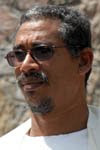Priesthood 2020 and Beyond

By Fr Dwight Merrick, Diocesan Vocations Director
Discerning a vocation to priesthood today means serving the Church with a vision for 2020 and beyond. And here lies the first hurdle; up to nine years of formation! This is certainly an obstacle for many hearing “the Call”, particularly when many professions require as little as three years of study. Frankly, the priestly studies can probably be done by any adult of average intelligence, it’s the formation that usually makes or breaks an aspirant. In fact, most of those who abort priestly preparation do so not for academic reasons but due to the demands of being formed to live as a sacred person amidst an increasingly anti-God world. While we recognise that most priests are quite happy in their vocation, do we always see the role of formation in this success? Even so, many of us as priests felt like we were still ordained too early, given the expectations placed on the priest. No effort is too much to ensure that an ordained priest is given every help possible to succeed at his vocation.
The question of poverty is yet another obstacle to answering the call to priesthood. While priests belonging to the Religious Orders do take the vow of poverty and the Diocesan priests do not, it is safe to say that all priests are expected to live a life of simplicity and would not normally be interested or able to acquire great wealth. Yet, the parents of priests can be sure that their sons will be well taken care of. Ironically, it is often the priest in a family who is best positioned to assist with ailing parents when that time comes along.
Over recent years, the promise/vow of obedience has also become a challenge for young men thinking of the priesthood. Indeed, both Religious Order priests as well as the Diocesan priests promise obedience to a Superior or Ordinary (Archbishop/Bishop). Of course it’s not just obeying a person but the very idea of obeying altogether has fallen out of favour in today’s world. When many Catholics treat the very commandments of God as optional, it should be no surprise that this aspect of the spiritual life is under attack even from within the hallowed corridors of the Church.
After some 40 years since the so-called “sexual revolution”, it should be no surprise that the requirement of celibacy is being also frowned at in no little way both within and outside the Church. While celibacy is in no way a “Catholic thing” (other religious traditions also include celibacy in various ways), this priestly requirement is possibly the biggest difficulty to the Catholic young man considering the priesthood as a life choice. And how ironic; the priest who vows to be celibate, is called to proclaim a gospel of life even while not begetting children and living amidst a culture of death.
Scandals are surely a concern for many thinking about the priesthood today. While there is so much being said on the topic however, it needs to be said that the Church herself, possibly more than people realise, is also hurt very deeply whenever there is a case of a priest involved in scandalous behaviour. It is therefore the serious intention and responsibility of the Church to weed out unsuitable applicants to the priesthood. Thus the scandals of recent times have served both to dissuade unsuitable aspirants and also to increase scrutiny of those progressing through priestly formation. Then there are those whose embarrassment might lead them to ignore their call to the priesthood altogether. My response to this is, “if I were called to be a lawyer, I do not think that the reality of crooked lawyers is going to make me change my mind; there are always going to be misfits in every profession and career.” We each have a responsibility to discern God’s call on our life and then pray for the courage and faith to respond to it.
The following excerpt taken from Vocation.com (http://www.vocation.com/QandAItem.aspx?id=1832) I find most helpful to anyone wondering about the idea of a vocation to priesthood or Religious life.
How can I tell if I have a Vocation?
If you have a vocation there are two signs that you have found where you are supposed to be.
One is that you feel “at home” there. This is logical, since your vocation is what God meant you to be when he created you, so obviously when you are where he wants you to be you have the feeling of being made for there, which you were.
But I think it is also very important that you feel like it is just a little too much. If you don’t you are either in the wrong place or you haven’t understood what it is all about.
You see, God always calls us higher. When you are where God wants you to be you realize that you are not going to be able to do this on your own. You need his grace, it is going to cost you, you are going to have to die to yourself, you are going to have to make choices, there are things you like that are now going to have to take second, third, or forth place, or have no place at all…The second sign then is that tremor of fear. You could say it another way, you could say that you have found your call when you discover that you are really going to have to work to make it a reality. Your vocation is not something you discover and slip into comfortably and effortlessly. It is going to take all the qualities you have (both spiritual and human) and make you stretch and develop and use them, beyond what you ever thought possible. Because God wants you to be a saint, and that is the challenge of a lifetime.

Comments